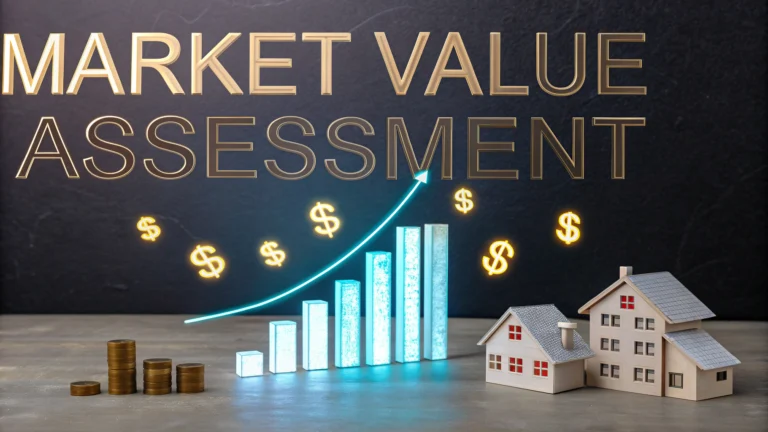Domain name market value depends on multiple critical factors that savvy investors carefully analyze before purchasing or selling digital real estate.
Key Valuation Metrics
Top-tier domain names are assessed using quantitative and qualitative measurements that determine their potential financial worth.
Length matters significantly, with shorter domains typically commanding higher prices and greater market demand.
Domain extension plays a crucial role in determining overall value, with .com domains consistently outperforming alternative top-level domains.
Numerical Evaluation Factors
- Character Length: Shorter domains (3-15 characters) generally increase value
- Search Volume: Keywords with high monthly searches boost domain worth
- Brand Potential: Memorable, pronounceable names increase market price
Professional Valuation Techniques
Professional domain appraisers utilize sophisticated algorithms and comprehensive market research to establish accurate pricing.
Automated valuation tools like Estibot and GoDaddy Domain Appraisal provide initial estimates based on historical sales data.
Manual expert review remains critical, as complex factors beyond algorithmic calculations influence true market value.
Investment Considerations
Successful domain investors understand that current market trends significantly impact potential future returns.
Emerging industry keywords and technological shifts can dramatically transform a domain’s perceived value over time.
Strategic investors monitor domain marketplaces like Sedo, Flippa, and GoDaddy Auctions to track pricing trends.
Recommended Valuation Approach
| Assessment Method | Accuracy Level |
|---|---|
| Automated Tools | 50-70% Accurate |
| Expert Appraisal | 80-95% Accurate |
Final Recommendations
Domain name valuation requires a balanced approach combining data-driven analysis and industry expertise.
Investors should continuously educate themselves on market dynamics and emerging trends to make informed decisions.
Always conduct thorough due diligence before significant domain investments to minimize financial risks.
Legal and Trademark Considerations
Domain name investments require careful legal evaluation to prevent potential trademark infringement or intellectual property disputes. Investors must conduct comprehensive trademark searches across multiple jurisdictions to ensure their potential domain acquisition does not conflict with existing registered trademarks.
International trademark registrations add complexity to domain valuation, as global brand protection strategies can significantly impact a domain’s marketability and potential resale value. Some domains may carry inherent legal risks that substantially diminish their investment potential.
Cybersquatting regulations and ICANN policies play a critical role in domain ownership protection. Professional domain investors must understand these legal frameworks to navigate potential challenges and protect their digital assets effectively.
Consulting with intellectual property lawyers specializing in digital asset management can provide crucial insights into potential legal risks associated with specific domain investments. This proactive approach helps mitigate potential future litigation and financial complications.
Technical Infrastructure and SEO Value
Domain names carry significant technical value beyond their surface-level branding potential. Search engine optimization (SEO) metrics directly influence a domain’s market worth, with factors like domain age, historical backlink profile, and previous content relevance playing crucial roles.
Website hosting infrastructure and domain performance metrics contribute to overall valuation. Domains with clean technical histories, minimal spam indicators, and stable hosting records typically command higher market prices.
Google’s algorithm considers domain authority and historical performance when ranking websites, making technical infrastructure a critical component of domain valuation. Investors must analyze comprehensive technical metrics beyond surface-level assessments.
Advanced technical analysis includes examining domain age, previous ownership history, potential penalties, and existing backlink ecosystems. These intricate technical details can dramatically impact a domain’s long-term investment potential.
Global Market Dynamics
International domain markets exhibit complex and dynamic valuation patterns influenced by regional economic conditions, technological adoption rates, and emerging digital ecosystems. Investors must develop a nuanced understanding of global market trends to make informed decisions.
Different geographic regions demonstrate varied domain investment preferences, with some markets prioritizing local language domains while others focus on global, English-language digital real estate. Understanding these regional variations is crucial for strategic domain portfolio development.
Currency fluctuations, geopolitical events, and technological innovation cycles significantly impact domain valuations across international markets. Sophisticated investors continuously monitor these macro-level trends to anticipate potential value shifts.
Emerging technologies like blockchain, artificial intelligence, and decentralized web platforms are creating new domain valuation paradigms. Forward-thinking investors must adapt their strategies to accommodate these transformative technological developments.
Risk Management Strategies
Effective domain investment requires robust risk management techniques that balance potential returns with comprehensive risk mitigation strategies. Diversification across multiple domain categories and asset types helps protect against market volatility.
Professional domain investors utilize sophisticated portfolio management techniques, including careful asset allocation, regular performance reviews, and strategic acquisition and divestment protocols. These approaches help optimize long-term investment outcomes.
Risk assessment involves analyzing multiple factors, including market liquidity, potential resale value, technological trends, and broader economic indicators. Comprehensive risk modeling enables more informed investment decision-making.
Implementing strict investment criteria, maintaining liquid assets, and developing exit strategies are essential components of successful domain investment risk management. Continuous learning and adaptive strategy refinement are crucial for sustained success.
Conclusion
Domain name investment represents a complex, multifaceted digital asset class requiring sophisticated analytical approaches. Success demands a holistic understanding of technological, legal, economic, and market dynamics.
Investors must remain adaptable, continuously educating themselves about emerging trends and developing nuanced evaluation strategies. The most successful domain investors combine data-driven analysis with intuitive market understanding.

